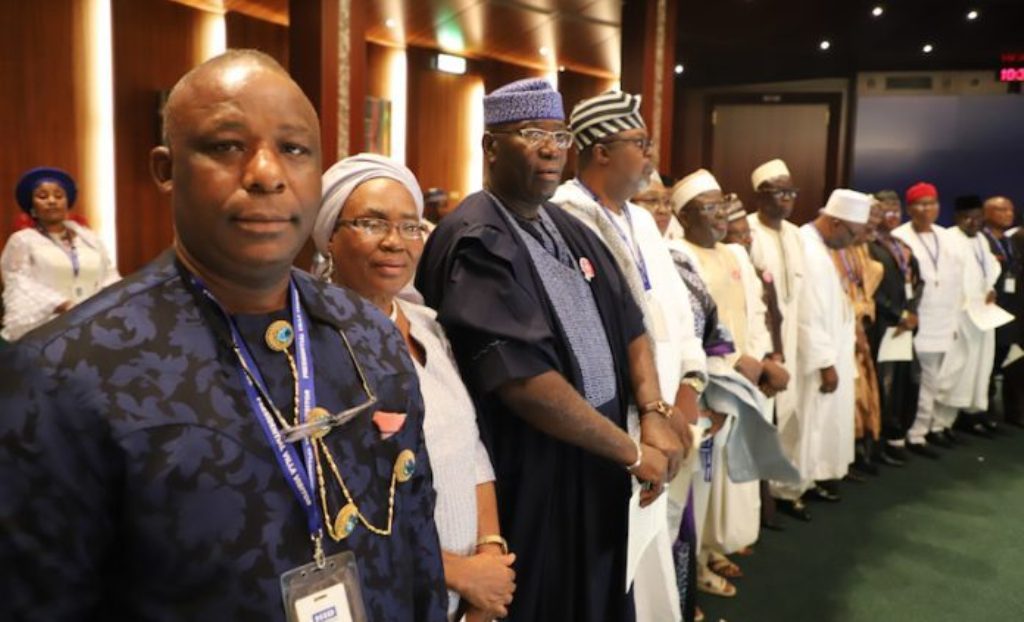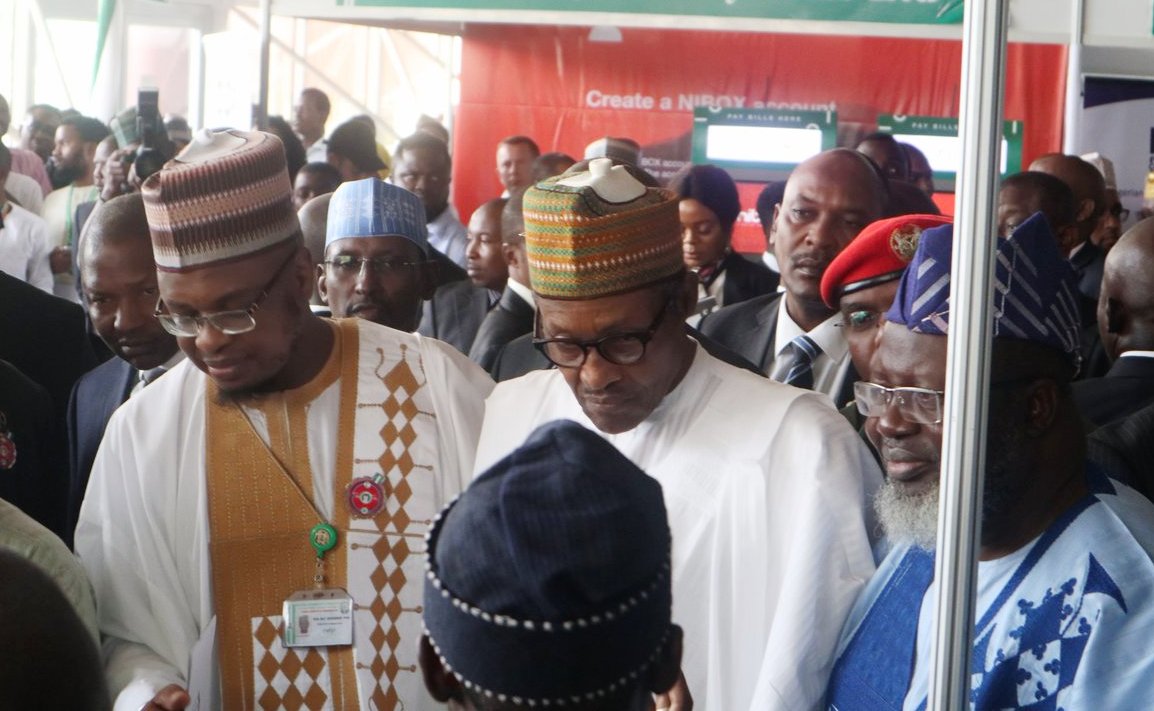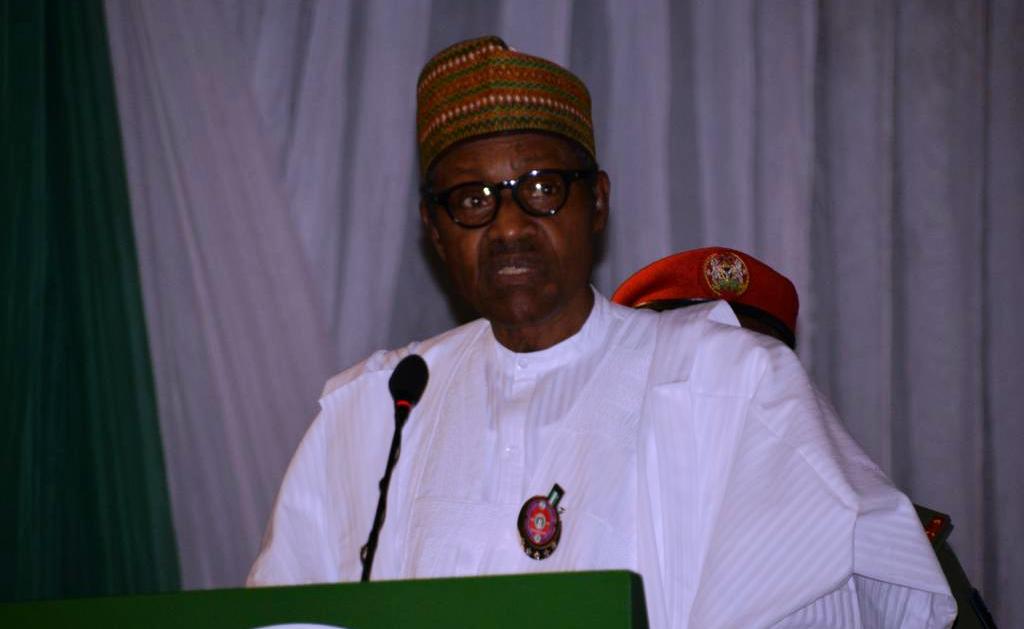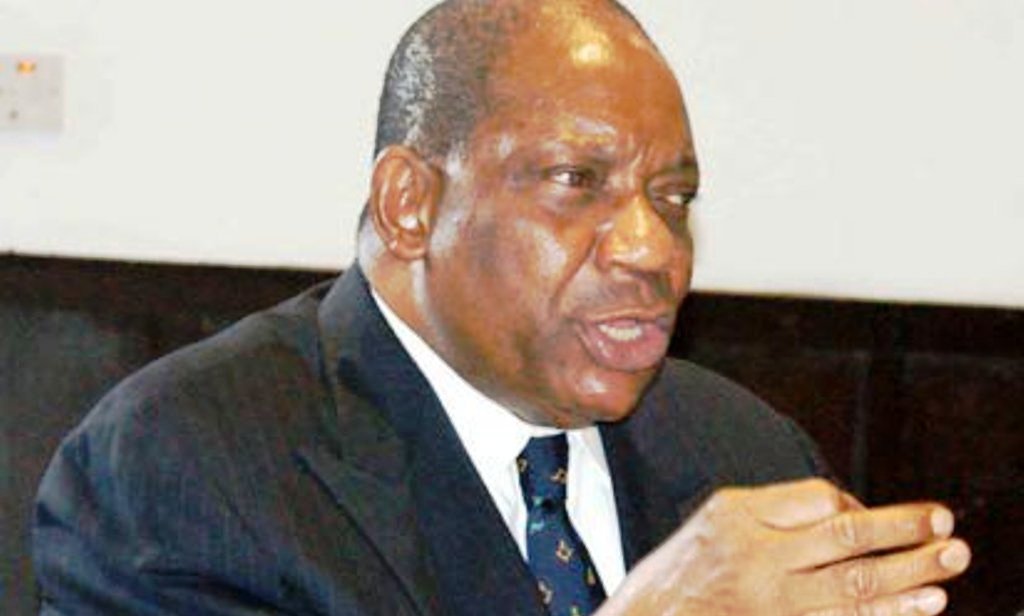By Godwin Etakibuebu
The controversy surrounding President Muhammadu Buhari’s certificate is gradually moving from “not-too-sweet-taste to extremely-bitter-taste”.
That is just one aspect of the drama that can be accommodated. But there is this other side of the episode that is too crucial a pain to bear.
And this “other side” is when opprobrium of an individual, albeit Nigerian President, has become a reproach of a nation and its entire people.
This certificate matter is now a national disgrace and embarrassment to all Nigerians at every material particular, not necessarily for the reason of its non-existent or otherwise, but more for the poor management of the President’s affairs by those going by the name of image-makers and media assistants.
It is this group of people that have thrown our beloved president into this seemingly ocean of embarrassment. I will explain.
The challenge of Muhammadu Buhari’s certificate started in the year 2014 as he was coming back into the race of contesting for the Nigerian presidency; a race he tried three times without success.
We need to pay attention to this observation, to wit: each of those previous efforts, nothing was heard of Major General Muhammadu Buhari certificate not being available, missing or not being at the disposal of the Nigerian Electoral Body [INEC].
It is very critical that we take judicial recognition of this fact.
It is this same man coming back into the same race in 2014, under another mega political party formed – All Progressives Congress, going through the same process he had followed for 12 years that a hurricane of Certificate scandal landed upon.
By the way, it is important also to note that Muhammadu Buhari had always contested the presidency; each time, under a different political party, starting with All Nigeria Peoples Party [ANPP], Congress for Progressive Change [CPC] and now All Progressive Congress [APC].
The point being made here is not much to his lack of stability with one political party but the fact that there was nothing said about lack of certificate in all his previous attempts.
Looking into the disparity compelling the revelation of lack of certificate may leave us with two conclusions.
One, it could be that the Electoral Bodies that were responsible for the elections of those previous years General Muhammadu Buhari contested were not diligent enough to have detected that the man had no elementary certificate for the contest he entered into.
Two, it might as well be that they knew that the retired General had no certificate but allowed the perfection of the system to be corruptly compromised, as similar casesoccurred from time to time in our land.
A third likely scenario might also be in existence on this critical evaluation. And that is the likely presence of something thick, salient, valuable or most important, which uttered the rules of engagement for the 2015 election contests so drastically, that commanded additional and a more thorough scrutiny of the contenders’ certificates.
Whichever and whatever the events of the time, General Muhammadu Buhari could not support presentation of his documents to the Independent National Electoral Commission [INEC] but instead, swore an affidavit that the original of his Secondary School Leaving Certificate was with the Military Secretary [Army].
Swearing affidavits has always been part of the political game in Nigeria – I mean all types of affidavits; from the normal to the abnormal, mentally balanced to the insane, even from the most ridiculous to what-have-you.
There was one of our political leaders of blessed memory from Kaduna State who swore too many affidavits during his active days until the late Senator Abraham Adesanya; another great politician and an astute lawyer, later challenged this affidavit-swearing legend in the court of law about the authenticity of his age.
It was proved judicially that one of the numerous affidavits the man sworn put his age two years younger than his first son while another affidavit was actually sworn on a Sunday. It is just the Nigerian way of doing things.
Maybe, it was for this reason, albeit Nigerian way of doing things that two faults were found in the affidavit General Buhari submitted to INEC in 2014.
The affidavit claimed that the original of his certificate or his credentials was with the Military – specifically with the Military Secretary [Army].
It would have been very normal that photocopies of those credentials; the ones with the Military, attached to his forms and submitted to the INEC, more so when the originals were not available. But this was not to be.
That became the first challenge of that affidavit and it would remain a major narrative as long as this issue subsists. The second being the fact that Major General Muhammadu Buhari, somewhere along the line of his beautiful military career, was a Military Secretary for the Army.
It became a little curious ipso facto, that he, expectedly, would have sufficient knowledge of how such matter [the Military retaining certificates submitted for purpose of evaluation only and within a period, also only] is handled.
It was for this reason that the Military High Command’s denouncing the claim of its former Commander-in-Chief on the certificate signaled such a monumental embarrassment to the respected General, and the fact that the matter might not be “dying” too soon.
The denial of General Buhari [I am referring to him as General here because he had not become democratically elected President when this argument started in 2014]’s claim by the Military High Command amounted to “total disrespect and mark of absolute disloyalty to a Commander-in-Chief”, according to retired Brigadier General Mansur Muhammad Dan Ali [later to be appointed Minister of Defence by President Muhammadu Buhari]’s harsh judgment on every member of the then Military High Command.
Could this total disrespect and absolute disloyalty be the reason why President Buhari threw out the entire Nigeria Defense Academy [NDA] Courses 26, 27 and 28 by picking his Chief of Army Staff [the current CAS] from Course 29, thereby wasting mercilessly such huge investment by Nigeria in training those officers to the rank of Major Generals? It is only time that shall answer this question.
Let us fast-track the discussion forward a little.
One or two facts were established while the episode of this certificate lasted between 2014 till 2015 when Muhammadu Buhari contested and won the election before being subsequently sworn-in as President on May 29, 2015.
One of those facts was that the examination President Buhari wrote in 1961 was never conducted by the West Africa Examination Council [WAEC] but instead conducted by the prestigiousUniversity of Cambridge Local Examinations Syndicate[UCLES], now Cambridge Assessment. This fact was attested to in the past. It means that President Buhari was not a candidate of WAEC.
It is a statement of fact that on January 22, 2015, WAEC; in replying to clarification on Buhari’s certificate, placed on them by MOVEONNIGERIA [a nebulous body that operated at that time] said that “we could not produce any CTC [certified true copy] on Mohammadu Buhari who attended the Provincial Secondary School in Katsina, Nigeria”.
At the same period, the University of Cambridge confirmed that they did not use the “alphanumeric grading system in 1961 which appears in Buhari’s certificate”.
Another fact that is in the public domain is that Muhammadu Buhari was enlisted into the Nigerian Army and had very successful career training all through, until he attained the rank of Major General and at every point of such numerous training he was awarded certificates.
The much l know about the Army, as it operated then, tells me that Buhari would not have “majored” if he did not pass that significant examination that separates “the majors from the minors”.
The minor ranks ends in “Captain” while the major rank starts from “Major”. Buhari wouldn’t have made it beyond the rank of Captain if he did not pass his examination at that point.
There is yet additional fact on this matter and that is the Constitutional qualification of the person that wants to be President of Nigeria. Section 131 [d] of the 1999 Constitution, as amended, says a person “shall be qualified for election to the office of President if he has been educated up to at least school certificate level or itsequivalent”, in addition to the person being a citizen of Nigeria by birth; attained the age of forty years and being a member of a political party and is sponsored by that political party”.
Let us look at Section 318 [1] which added value to the issue of qualification to contest for the office of President.
“School Certificate or its equivalent” means (a) a Secondary School Certificate or its equivalent, or Grade II Teacher’s Certificate, the City and Guilds Certificate; or (b) education up to Secondary School Certificate level; or (c) Primary Six School Leaving Certificate or its equivalent and- (1) service in the public or private sector in the Federation in any capacity acceptable to the Independent National Electoral Commission for a minimum of ten years, and (11) attendance at courses and training in such institutions as may be acceptable to the Independent National Electoral Commission for periods totaling up to a minimum of one year, and (111) the ability to read, write, understand and communicate in the English language to the satisfaction of the Independent National Electoral Commission; and (1V) any other qualification acceptable by the Independent National Electoral Commission.”
All stated above by the Nigerian Constitution, no doubt, approved Buhari as qualified to run for the office of the Nigerian President. Then, where is the challenge therefore?
The issue here is the clumsiness surrounding that Secondary School certificate purported to have been issued to him from the Kastina Provincial School. Let us look at this very carefully as they might help us to understand the noise about the issue.
In 2015 [January 22] WAEC wrote to say it could not authenticate Buhari’s certificate issued in 1961 because the name “Mohammadu Buhari is not on our record” and Buhari never claimed to have been a candidate of WAEC but instead, of Cambridge [or even Oxford] and if this same WAEC sent its Registrar; Mr Iyi Uwadiae, on Friday, November 2, 2018, to present “ATTESTATION” [of the missing certification] to President Buhari in Abuja, then the truth about this matter has been buried somewhere along the journey of history.
What is expected by the good people of Nigeria and the international Community is for those handling the President’s public image to come out clean in admitting a few things which had gone wrong in the past, apologize for their misbehavior and set the record straight.
Because if the truth is to be told, the certificate scandal, as it stands today, is bordering more on offense of perjury [for affidavit sworn on oath] or fraud for obtaining attestation from WAEC that had earlier admitted of not having his record conducting.
This sure will be a better option of removing Nigerians from this calamity of shame and saving the president from this bitter agony.
Godwin Etakibuebu; a veteran Journalist, wrote from Lagos.
godwin@thenewsguru.ng
Mobile: +234-906 887-0014.



